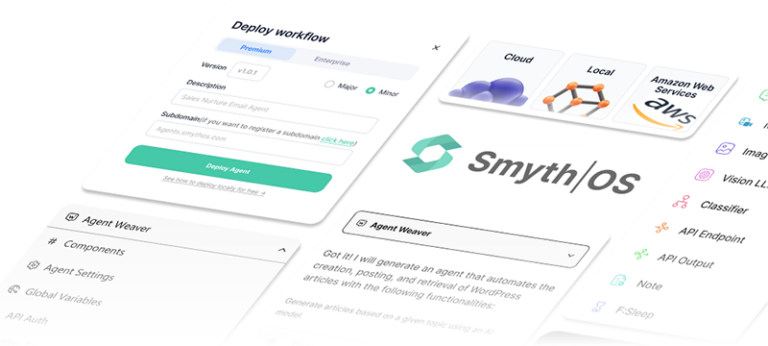Empowering Global Innovation with SmythOS
Empowering Global Innovation with SmythOS
Blog Article
Redefining Human-AI Collaboration
Artificial intelligence (AI) is transforming industries ranging from healthcare to money, but one important concern stays at the front of development: inclusivity. While AI offers groundbreaking possible to revolutionize lives, additionally, it holds the chance of reinforcing social inequities. For smythos to truly allow culture, it should be built to be inclusive. This means ensuring equity, accessibility, and representation at all stages of development.
The Struggles of Bias in AI
Data demonstrate that partial AI outputs are a representation of the data they are qualified on. Poor representation in datasets can cause discriminatory outcomes. For example, a commonly mentioned examine revealed that skin acceptance computer software has an mistake rate of 35% for darker-skinned women, compared to less than 1% for light-skinned men.That features a significant catch that disproportionately influences previously marginalized groups.

The issue is not just limited to face recognition. Language versions have exhibited biases, reinforcing hazardous stereotypes within their outputs. Inclusive teaching data and diverse clubs of developers are necessary to mitigate these issues. Without this, the risk stays that AI can perpetuate cultural inequality as opposed to resolving real-world problems.
The Benefits of Inclusive AI
When AI is created inclusively, its benefits ripple across society. Inclusive AI might help bridge spaces for underrepresented neighborhoods in training, health, and employment. For example, available AI answers like screen viewers driven by organic language handling have previously widened opportunities for people who have disabilities. But there's still untapped potential to create these options commonplace as opposed to exceptions.
Study also shows diversity in AI progress contributes to innovation. A examine from a high institution records that organizations with large selection in management jobs are 45% much more likely to record higher market share growth. These ideas underline why inclusivity in AI is not really a necessity for ethical reasons but an advantage for innovation and progress.

The Road Ahead
Making inclusive AI demands change across multiple dimensions. Diverse and representative datasets, intersectional screening functions, and effective ethical governance are the cornerstones of equitable AI development. Moreover, policymakers should play a role by enforcing regulations that push for openness and accountability in AI systems.
The move toward inclusive AI is not only in regards to the technology. It's about redefining what development appears like. By prioritizing inclusivity, we can guarantee AI not just covers problems but does therefore for everyone, making no-one behind in the technical revolution.
While problems stay, the growing conversation about inclusivity in AI signals progress toward an even more equitable future. By addressing biases nowadays, we could style methods that empower as opposed to exclude, showing the range of individuals they make an effort to serve.
Report this page